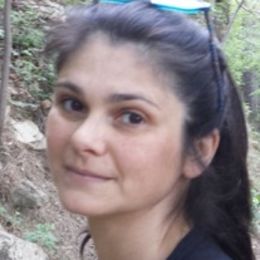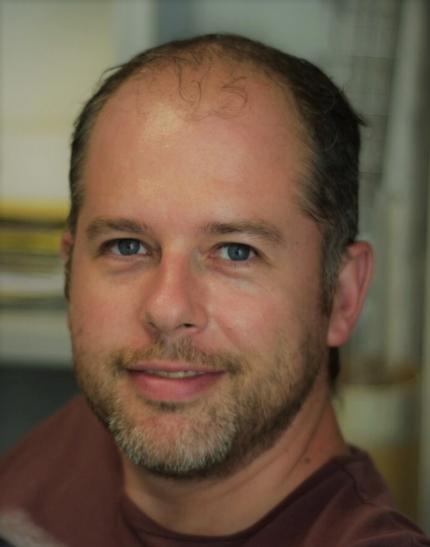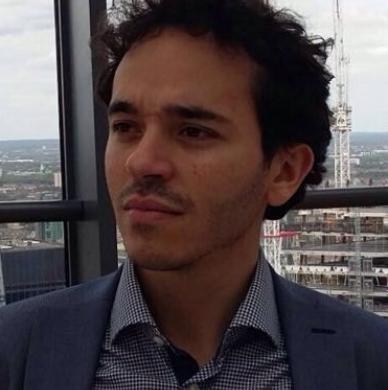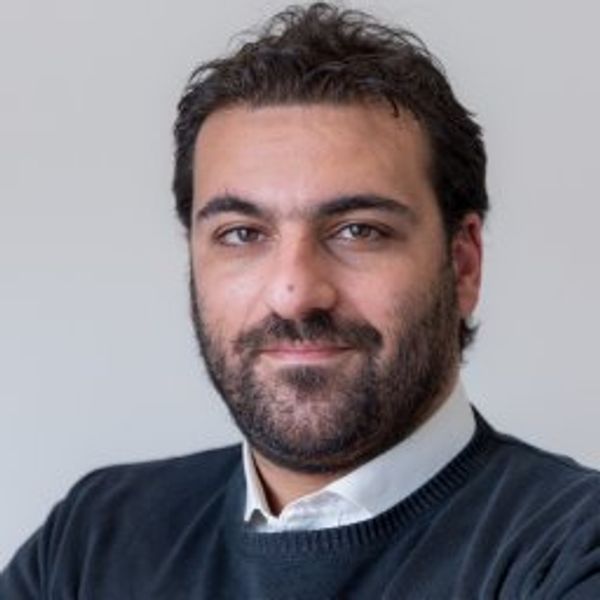Robotics Research Jam Session 2023 - Speakers
- Gionata Salvetti, Associate Professor – Università di Siena

Gionata Salvietti ha ricevuto la Laura Specialistica in Ingegneria Informatica e il Dottorato in Ingegneria dell'Informazione all'Università di Siena, Siena, Italia, rispettivamente nel 2009 e 2012. È stato ricercatore post-dottorato presso l'Istituto Italiano di Tecnologia dal 2012 al 2015. È stato Visiting Researcher presso l'Istituto DLR di robotica e meccatronica, nel 2012 e Visiting Student con il gruppo TAMS, Università di Amburgo, nel 2008. È attualmente Ricercatore RTD-B presso il Dipartimento di Ingegneria e Matematica dell'Informazione, Università di Siena. Dal 2020 è Associate Editor di IEEE Transaction on Haptics. I suoi interessi di ricerca sono la robotica collaborativa, i dispositivi di assistenza e l'aptica.
- Casadio Maura, Professore associato Biomedical Robotics e Rehabilitation Robotics -Dipartimento di informatica, bioingegneria, robotica e ingegneria dei sistemi, Università di Genova

Maura Casadio is Associate Professor of Biomedical Engineering at the University of Genoa, Italy. She received a Master’s degree in Electronic Engineering (2002) at the University of Pisa, a Master’s degree in Bioengineering (2007) and a PhD in Robotics and Bioengineering (2006), both at the University of Genoa. She has been working (2008-2011) as postdoctoral fellow in the Department of Physiology, Northwestern University and the Robotics Laboratory, Rehabilitation Institute of Chicago. Her main areas of interest are neural control of movement, robots for rehabilitation and body-machine interfaces. She is author and co-author of about 30 peer reviewed journal papers.
- Tripicchio Paolo, Assistant Professor in Meccatronica – Scuola Superiore Sant’Anna di Pisa

Paolo Tripicchio (Ing. PhD) è Assistant Professor in Meccatronica. Si è laureato in Ingegneria dell’Automazione all’Università di Pisa nel 2006 e ha conseguito il dottorato con lode in Robotica Percettiva alla Scuola Superiore Sant’Anna di Pisa nel 2012. Nel 2012 è stato un lettore all’Istituto Tecnologico di Orizaba (MX) con corsi attinenti la realtà virtuale e le sue applicazioni. Successivamente, nel 2016 ha insegnato Computer Vision per la navigazione autonoma di droni all' Università autonoma dello stato del Messico (Toluca). Attualmente ricopre la carica di responsabile del Centro Gustavo Stefanini. Le sue attività di ricerca riguardano la Robotica, l’Aptica, i sistemi di controllo, la realtà virtuale e l’intelligenza artificiale. Ha pubblicato più di 40 articoli scientifici su riviste internazionali e cataloghi di conferenze internazionali e nazionali. E’ stato membro di numerose commissioni di revisione in conferenze internazionali e riviste. E’ stato editor del volume “Ambient Intelligence and Smart Environments” di IOS Press. E’ stato chair del primo workshop internazionale su “Intelligent Multimodal Interfaces Applied in Skills Tranfer, Healthcare and Rehabilitation” e del “Joint PRESENCCIA and SKILLS PhD Symposium”.
- Falotico Egidio, Ricercatore – Isitituto di Istituto di Biorobotica, Scuola Superiore Sant’Anna di Pisa

Egidio Falotico received the Ph.D. degree in cognitive science from Université Pierre et Marie Curie, Paris, France, and a Ph.D. degree in bioRobotics from Scuola Superiore Sant’Anna, Pisa, Italy, He is a tenure-track assistant professor at the BioRobotics Institute of scuola Superiore Sant’Anna, 56127 Pisa, Italy. His research focuses on neurorobotics and brain-inspired control. He is a Member of IEEE.
- Dietrich Alexander, German Aerospace Center (DLR) - Institute of Robotics and Mechatronics

Alexander Dietrich received the Dr.-Ing. degree from the Technical University of Munich (TUM) in 2015. In 2010, he joined the German Aerospace Center (DLR), Institute of Robotics and Mechatronics, as a research scientist. Among others, he received the Georges Giralt PhD Award 2016 for the best European thesis in robotics, the DLR Science Award in 2020, and the Distinguished Service Award for Outstanding Associate Editors of the IEEE Robotics and Automation Letters in 2020. He published more than 60 peer-reviewed papers in international journals, books and on conferences, and he is holding 13 patents. He is IEEE Senior Member, Editor of the IEEE ICRA (2020-2022), Associate Editor for IEEE T-RO (since 2021), IEEE RA-M (2018-2020), IEEE RA-L (2017-2021), and he was co-chair of the IEEE RAS Technical Committee on Whole-Body Control (2018-2021).
Since 2017 he is head of the whole-body control group at the Institute of Robotics and Mechatronics of the DLR, and since 2019 he is lecturer at TUM on the control of modern lightweight robots. His current research interests include whole-body mobile manipulation, impedance and force control, hierarchical control for kinematically redundant robots, safe physical human–robot interaction, and the stability analysis of the corresponding control approaches.
- Hutchinson Seth, Professor and KUKA Chair for Robotics in the School of Interactive Computing

Seth A. Hutchinson is an American electrical and computer engineer. He is the Executive Director of the Institute for Robotics and Intelligent Machines [1] at the Georgia Institute of Technology, where he is also Professor and KUKA Chair for Robotics in the School of Interactive Computing. His research in robotics spans the areas of planning, sensing, and control. He has published widely on these topics, and is coauthor of the books "Robot Modeling and Control," published by Wiley, Principles of Robot Motion - Theory, Algorithms, and Implementations, with Howie Choset, Kevin M. Lynch, George Kantor, Wolfram Burgard, Lydia E. Kavraki and Sebastian Thrun.
Hutchinson has served as president of the IEEE Robotics and Automation Society (RAS),[2] member of the RAS Administrative Committee, the Editor-in-Chief for the "IEEE Transactions on Robotics" and as the founding Editor-in-Chief of the RAS Conference Editorial Board. He is a Fellow of the IEEE.
Hutchinson is an Emeritus Professor of Electrical and Computer Engineering at the University of Illinois at Urbana-Champaign, where he was Professor of ECE until 2018. He received his Ph.D. from Purdue University.
- Catalano Manuel Giuseppe, Researcher-SoftRobotics for Human Cooperation and Rehabilitation, IIT

Manuel G. Catalano is a Researcher in IIT under the research line SoftRobotics for Human Cooperation and Rehabilitation. He is also Research Fellow at Centro di Ricerca E. Piaggio - University of Pisa, and at MayoClinic, Rochester, USA. He received the Laurea degree in Mechanical Engineering and the Doctoral degree in Robotics and Bioengineering from the E. Piaggio Research Center at the University of Pisa.
Manuel is Principal Investigator of the EU Project “Reconcycle” and coordinates the activities of the “JoIInt Lab” in Bergamo, a technology transfer collaboration between IIT and Intellimech, a consortium of Medium and Big Mechatronic Enterprises.
His Ph.D. thesis contributed some important results in at least two subfields, Variable Stiffness Actuation and Soft Hands, which supported influential EU projects involving IIT, such as VIACTORS, SAPHARI, and the ERC AdG SoftHands. His thesis received the G. Giralt Award for the best Ph.D. Thesis in 2014, followed by a number of other awards in conferences and events where my work was presented.
Today his main research interests are in the design of Soft Robotics systems, Human-Robot Interaction, Avatars, Prosthetics, and Rehabilitation. Recent results of his contributions are the prosthetic hand SoftHand Pro; the SoftFoot a proof-of-concept soft robotic foot; Alter-Ego a soft humanoid robot for physical interaction in autonomous, and teleoperated contexts, and the Walk-Man platform, a humanoid robot designed for the DARPA Robotic Challenge.
He had a prominent role in the organization of IIT’s participation in several important expeditions and events: leader of the AlterEgo team at the ANA AVATAR XPrize, IIT leader in the field mission in collaboration with Stanford’s Ocean One K underwater robot using the SoftHand Underwater; leader of the SoftHand Pro team in the two editions of the Cybathlon Powered Arm Prosthesis competition; leader of the LHF Connect Project, which developed a ready-to-use telepresence and telemedicine robot to help Covid-19 patients and operators under the strict lockdown in the spring of 2020, and deployed it in the Covid area of two hospitals; leader of IIT’s team in Amatrice in 2016, where the WalkMan platform was adopted to assist the Italian Civil Corps to assess building safety in the post-quake scenario; field leader for the DARPA Robotic Challenge, where IIT participated with the humanoid Walk-Man; leader in the ESA Lunar Robotics Challenge Competition in Tenerife. A complete list of field and experimental activities are available in the Manuel's CV.
Manuel is co-Founder of Natural Machine Motion Initiative (NMMI - https://www.naturalmachinemotioninitiative.com), an Open-Source community and platform for SoftRobotics. The Initiative is supported and Hosted by Fondazione Istituto Italiano di Tecnologia e Centro di Ricerca “E. Piaggio”- Università di Pisa.
Manuel is co-founder of “qbrobotics s.r.l.”, a spin-off company of Fondazione Istituto Italiano di Tecnologia e Centro di Ricerca “E. Piaggio”- Università di Pisa. qbrobotics Srl is a high-tech company that produces innovative soft robotic muscles and robotic hands that exploit soft robotics technologies.
Nowadays most of the technologies developed by Manuel Catalano reached a Technology Readiness Level (TRL) of 6/7. The Pisa/IIT SoftHand, the SoftHand Pro, and the VSA-Cubes, approached a TRL of 9 (Market Ready). A complete list of systems and robots developed is available in the Manuel's CV.

